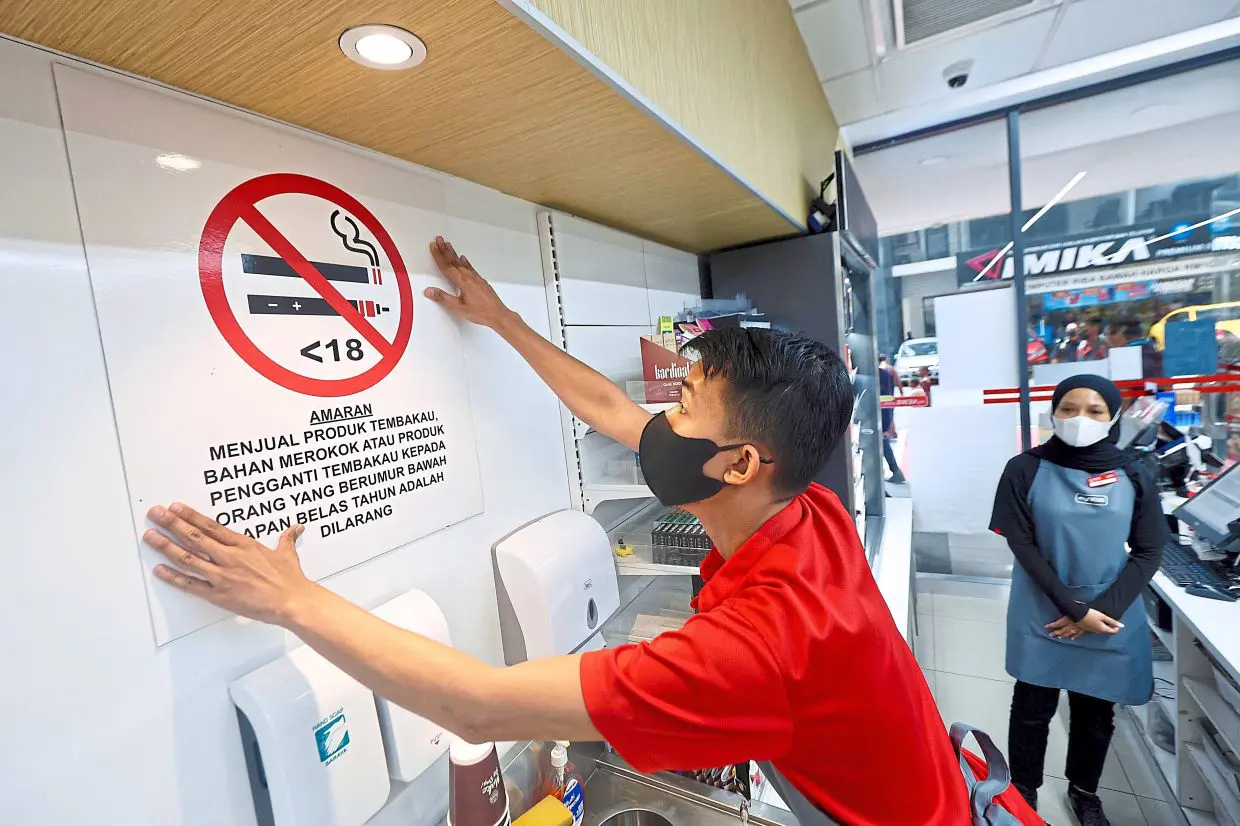 PETALING JAYA: The recent revelation that the government may expand pro-health tax by taxing vape, tobacco and alcohol products has raised an eyebrow among activists, with concerns emerging that the proposal to ban vape may falter.
PETALING JAYA: The recent revelation that the government may expand pro-health tax by taxing vape, tobacco and alcohol products has raised an eyebrow among activists, with concerns emerging that the proposal to ban vape may falter.
Anti-smoking crusaders are now demanding answers from the government on whether it will eventually move to ban vape, or just tax the substance, with Consumers Association of Penang (CAP) education officer NV Subbarow querying the recent announcement under the 13th Malaysia Plan (13MP).
“I am totally confused. What is the point of imposing tax on vape products?
“The Health Minister must immediately clarify the government’s position on banning vape and e-cigarettes,” he said, emphasising CAP’s support for a total ban.
Subbarow said the government could instead impose higher taxes on cigarettes and alcohol to reduce non-communicable diseases.
“The Finance Ministry must clarify the tax on vape,” said the anti-smoking activist, who argued that vape will lead to addiction problems that the government will have to deal with, including that of drug-laced vapes.
“The government has to spend millions to rehabilitate these new addicts because of vape culture.”
On July 28, Health Minister Datuk Seri Dr Dzulkefly Ahmad told Parliament that Putrajaya is considering a nationwide ban on the use and sale of e-cigarettes or vapes.
Dzulkefly stated that a special committee from the Health Ministry will propose the ban to address the abuse of e-cigarettes, which is a marked difference from his earlier statement that said it would be more feasible to regulate instead of a total ban.
On July 31, Prime Minister Datuk Seri Anwar Ibrahim announced plans for the expansion of pro-health taxes when tabling 13MP.
Acknowledging that a complete ban will require time due to the legislative process and the need to set up effective enforcement systems, Federation of Malaysian Consumers Associations (Fomca) secretary-general T. Saravanan said pro-health taxes are a realistic and immediate measure to control usage.
“By implementing the taxes now, the government is showing that it is moving in the right direction by taking immediate action while laying the groundwork for a full ban in the future,” he said.
He said the imposition of these taxes on vape, tobacco and alcohol is essential as higher prices act as a deterrent, especially for casual users and youths.
“While the ban is being prepared, taxation remains a powerful tool to reduce harm and discourage use,” he said.
In the short-term, he said pro-health taxes will help reduce consumption and generate funds for awareness and enforcement.
“From there, an emphasis on education, awareness and proper enforcement when it comes to smoking areas will reinforce public health protections.
“In the long-term, a complete ban can be implemented once all systems are in place.
“This is a clear and consistent strategy that moves the nation towards better public health outcomes while managing the challenges of enforcement and compliance,” he added.
Ikram Health Malaysia president Dr Mohd Afiq Mohd Nor said as a doctor and public health advocate, he strongly supports a complete ban.
“The long-term health risks, especially among youth, far outweigh any economic benefit.
“However, we understand that a nationwide ban requires time to enable regulatory and enforcement mechanisms to be in place,” he added.
In the meantime, Johor, Kelantan, Terengganu and Perlis have banned the sale of vape products, while Kedah will stop issuing new licences for vape stores.